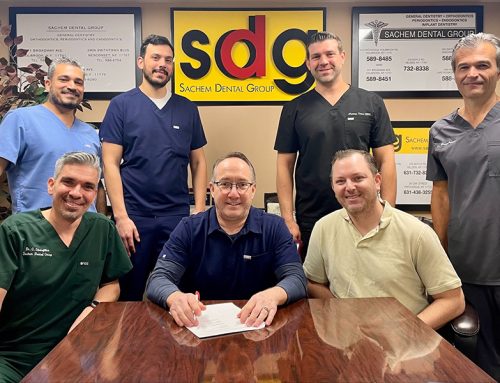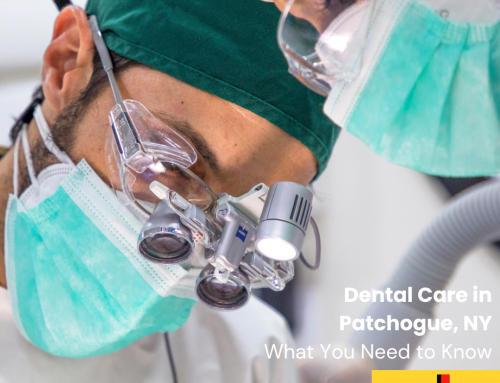
What types of implants are there?
If you’re getting dental implants in Long Island, you usually have three different types of implant design options to choose from: traditional, porcelain/zirconia, or “mini” implants.
The best type of implant for each person depends on their smile’s shape, which tooth is missing, and issues like bone loss or gum recession. Here are a few things you’ll want to consider before talking to our Suffolk County implant dentists:
Is There Room?
First and foremost, it’s important to note if there’s enough space for your dental implant to fit. Losing a tooth tends to lead to bone resorption (shrinkage) and the neighboring teeth drifting into the gap, narrowing the space left to install a tooth replacement.
If the space is too narrow, traditional types of implants won’t be able to fit without adjunctive therapies (like orthodontic aligners or braces.) However, a mini dental implant may fit perfectly. Mini implants are about one half of the size (and width) of a typical titanium implant.
Do You Have Gum Recession?
Receding gumlines can be caused by trauma, gum disease, aggressive toothbrushing, and tooth loss. When the tissue pulls back, it exposes the root surfaces of your teeth. But when dental implants are involved, gum recession can pose an aesthetic challenge as well.
For areas where an implant might be visible (like when you’re smiling or laughing,) there’s an alternative design worth considering: ceramic implants. Choosing a tooth-colored porcelain or zirconia implant eliminates the risk of visible silver at your gumlines because the entire unit is crafted from cosmetic ceramic. If any surface is exposed or you’re worried about gum recession in the future, choosing porcelain will give you the best dental implant aesthetics.
How Much Bone Support is There?
Since all types of dental implants rely on bone to keep them in place, an important determining factor in your eligibility is how much bone is present at the desired implant site. Will you need a graft or sinus lift to ensure enough support?
As long as you have adequate room and bone support, traditional titanium will tend to be the best go-to option. However, thin bone ridges or a sunken sinus lining may contraindicate an everyday implant procedure. In such instances, electing to have a smaller “mini” implant installed will usually be more efficient.
Which Type of Implant Restoration do You Plan to Get?
Different types of implants are made for different types of restorations. For example, you wouldn’t use mini implants to anchor a permanent hybrid bridge/denture, but you could use them to stabilize a removable denture/plate.
During your dental implant consultation at Sachem Dental Group, our Suffolk County multi-specialty general dentists will share their recommendations and answer any questions that you have. From there, we’ll draft a proposed treatment plan with the type of dental implants that are best for you. We even offer flexible financing!
Contact us today! We’ve proudly served Long Island for over 35 years, offering individualized and quality dental implant therapy to adults of all ages.






